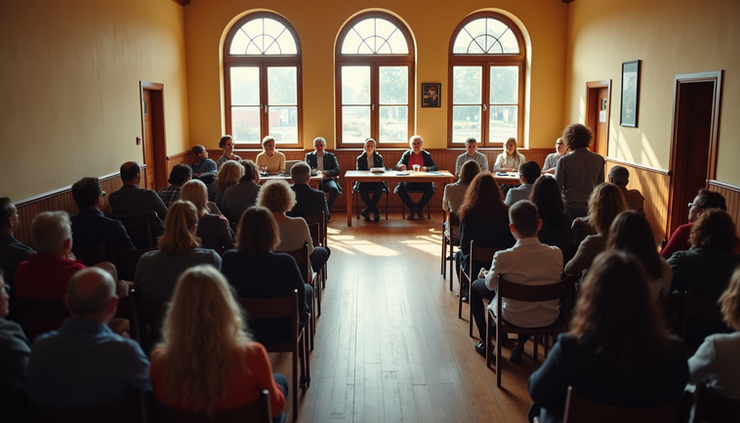From Closed Doors to Crime: The Price of Desperation and Broken Dreams
- hoodboxoffice

- Nov 18, 2025
- 3 min read
Four friends—Marcus, Dre, Tyrell, and Rico—grew up in a neighborhood where opportunities seemed like distant myths. Poverty, fractured families, and a sense of abandonment shaped their world. When legitimate paths to success remained blocked, they chose risk over patience. What started as a small, seemingly harmless robbery scheme soon became a dangerous routine that pulled them deeper into trouble than they ever imagined.
This story is not just about crime. It is about how desperation can cloud judgment, how broken dreams can lead to broken bonds, and how the choices made in moments of hopelessness can have lasting consequences.

The Weight of Closed Doors
Marcus, Dre, Tyrell, and Rico grew up believing the world had nothing to offer them. Their neighborhood was marked by poverty and neglect. Schools lacked resources, jobs were scarce, and family struggles were common. Each friend carried a personal burden:
Marcus was the planner, using his intelligence to map out their moves, but he felt the heavy responsibility of every decision.
Dre pushed for bigger risks, driven by pride and the lure of quick money.
Tyrell masked his anxiety with forced optimism, while debt and family pressures tightened around him.
Rico sought belonging, following the group despite his growing fear.
Their motto, “No excuses,” became a shield to block out guilt and doubt. It was a way to justify their actions when the world seemed to have shut them out.
The Allure of Risk and the Thrill of the Score
At first, the robberies were small and seemed harmless. The adrenaline rush was addictive, and the cash felt like proof that their plan was working. These small wins gave them a false sense of control and success. They believed they had found a shortcut to a better life.
But the reality was different. Each new job was riskier than the last. The stakes grew higher, and the consequences became more severe. Fault lines appeared in their friendship as unspoken fears and disagreements surfaced.
Marcus worried about the increasing danger but felt trapped by the group's momentum.
Dre’s push for bigger targets created tension and raised the risk of getting caught.
Tyrell’s debts grew, and his optimism began to crack.
Rico’s fear deepened, but he stayed loyal, hoping to find a place where he belonged.
When Desperation Turns Deadly
Their downfall came during a high-stakes robbery they should never have attempted. An unexpected witness, a panicked reaction, and a fatal mistake set off a chain of events they could not escape. The unity they once had shattered under the weight of guilt, paranoia, and blame.
This moment revealed the harsh truth: there are no shortcuts or easy escapes. The choices made in desperation led to tragedy, not freedom.

The Real Cost of Broken Dreams
The story of Marcus, Dre, Tyrell, and Rico is a powerful reminder of how quickly hope can turn into despair when doors remain closed. Their journey shows the price of desperation:
Lost trust among friends who once believed they were in it together.
Legal consequences that could affect their futures for years.
Emotional scars that last long after the crimes end.
Missed chances to seek help or find safer paths.
Their motto, “No excuses,” which once protected them, became a barrier to admitting mistakes and seeking change.
Finding a Way Forward
Stories like this highlight the importance of community support, access to opportunities, and early intervention. When young people face closed doors, they need alternatives that offer real hope and guidance.
Programs that provide education, job training, counseling, and mentorship can make a difference. Building strong support networks helps prevent the slide into risky behaviors driven by desperation.
Communities can work together to:
Create safe spaces for youth to express their struggles.
Offer practical skills and job opportunities.
Provide mental health resources to address underlying pressures.
Encourage open conversations about choices and consequences.

A Story to Remember
The journey of these four friends is a cautionary tale about the dangers of taking shortcuts when life feels unfair. It reminds us that desperation can cloud judgment and that broken dreams can lead to broken lives.
But it also points to the need for compassion, understanding, and action. When society closes doors, it must also open windows of opportunity. Only then can hope replace despair, and choices lead to better futures.
If you or someone you know faces similar struggles, remember that help is available. Seeking support is not a weakness but a step toward breaking the cycle.

Comments